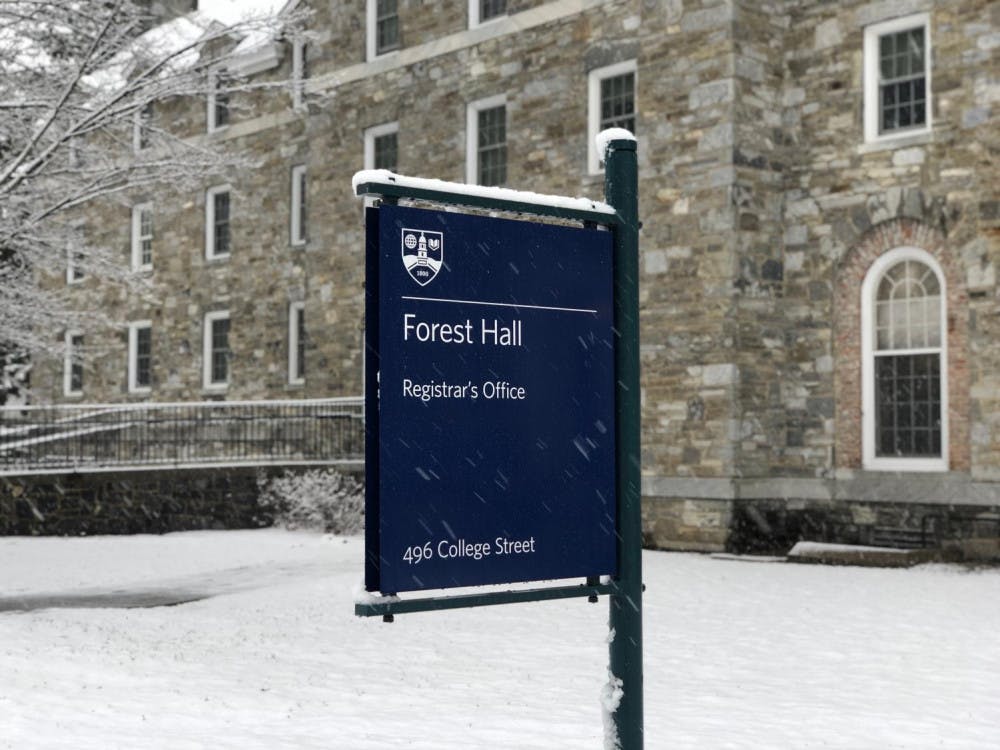After weeks of impassioned discussion and a number of all-school emails, the debate over Middlebury’s grading policy for the spring term has generated many questions regarding the decision-making process. Among them: who will have the final say over grading?
Reinforcing opt-in
The ad hoc academic continuity group, composed of administrators, faculty and staff from various departments and committees, formed to address academic policies on an accelerated schedule after students left campus in March. It made the original decision to enforce an opt-in Pass/D/Fail system and then revised the policy on April 3 to extend the deadline to invoke the option, a decision that Dean of Curriculum Suzanne Gurland said involved responses from several groups of students and faculty.
“There were compelling arguments on all sides of the issue, with students who wanted a binary or Pass/D/Fail system offering strong arguments for that, and students who wanted letter grades offering strong arguments for that,” Garland said. “There seemed to be no one perfect solution for everyone. The fairest way forward still seemed to be a system that would allow each student to go with what worked for their needs.”
The group hopes that extending the deadline will allow students to obtain more information, such as feedback from professors and greater insight into how circumstances at home will affect their academic performance, before deciding to invoke Pass/D/Fail.
Separately, the SGA met with both the organizers of #FairGradesMidd and #OptInMidd on March 29 to hear their platforms. They sent out an all-student survey on March 31 in hopes of getting feedback about which campaign to endorse, then agreed to wait on a formal decision when they found out dual A/A- was not a viable option and when the administration seemed to have made a final decision, said Senior Senator John Gosselin.
The academic continuity group made the updated decision before receiving the SGA survey results; thus, the data on student opinion was not included in the decision.
“Although the survey results might have provided interesting information, as professional educators, we took into account a variety of factors, including the extraordinary nature of the current moment, the issues of access students are experiencing, and equity considerations in determining what might be best for all our students’ education,” Gurland said.
She added that the group was created specifically to make academic decisions like these on an abbreviated timeline due to the Covid-19 emergency, and that faculty were consulted extensively in the original process.
A new option
The Campus reported this Friday that faculty were set to vote on a new motion — a proposal for a mandatory credit/no credit system. The vote is scheduled for this Friday, April 17. One of the qualms made in the motion is that grading policy is an issue that should be decided on by the faculty at large. Accordingly, if this motion passes a majority vote on Friday, the proposed mandatory credit/no credit policy will be instituted for the spring term.
Following this proposal, the SGA voted to endorse the mandatory credit/no credit resolution this past Sunday. Thirteen senators voted in favor, with one voting against and two abstaining.
The resolution, which encouraged the faculty to vote for the mandatory credit/no-credit proposal, was co-sponsored by Junior Senator and Speaker John Schurer ’21, Sophomore Senator Paul Flores-Claval ‘22 and Wonnacott Senator Myles Maxie ’22. While it does not have any formal influence over the decision, it is meant to indicate student opinion — something for which faculty have been asking students as they prepare for the Friday vote.
“Central to all of our deliberations on this topic is this: how can we approach more equity while also staying attuned to what is feasible?” Varsha Vijayakumar ’20, president of the SGA, said in an email to The Campus. The SGA began talking about endorsing #FairGradesMidd.
“This issue goes beyond just the grading system; it is also an issue of how the college responds to information from students,” said Maxie, who has been active with #FairGradesMidd. “In my capacity as a senator, I will be pushing to hold our college accountable in hearing student voices and weighing those accordingly.”
The SGA also voted in favor of a bill that advocates for accessible and equitable online learning, co-sponsored by Community Council Co-Chair Roni Lezama ’22 and Feb Senator Mistaya Smith ‘21.5. The bill outlines several steps that they hope the administration and faculty will take, which aim to address issues of equity in remote learning. It includes asking Middlebury to provide resources and information to students that would expand access to online classes, and it encourages faculty to be flexible with assignment deadlines and class attendance.
The bill also requests that professors send provisional grades to students by May 5 so they can make an informed decision on whether or not to invoke the optional Pass/D/Fail before the May 8 deadline.
Abbie Chang ’23 contributed reporting.
Correction: A previous version of this article failed to name one of the SGA resolution's sponsors, Sophomore Senator Paul Flores-Claval ‘22. The article has been updated to include that information.

Tony Sjodin ’23 is a managing editor.
He previously served as community council correspondent, senior writer, news editor and senior news editor.
Sjodin is majoring in political science with a focus on international and comparative politics. He previously held internships with the Appalachian Mountain Club's Outdoor Magazine, political campaigns in Massachusetts and Vermont, and the U.S. Embassy in Costa Rica's Environmental Hub. Outside of class, he leads kayaking and hiking trips with the Middlebury Mountain Club.




